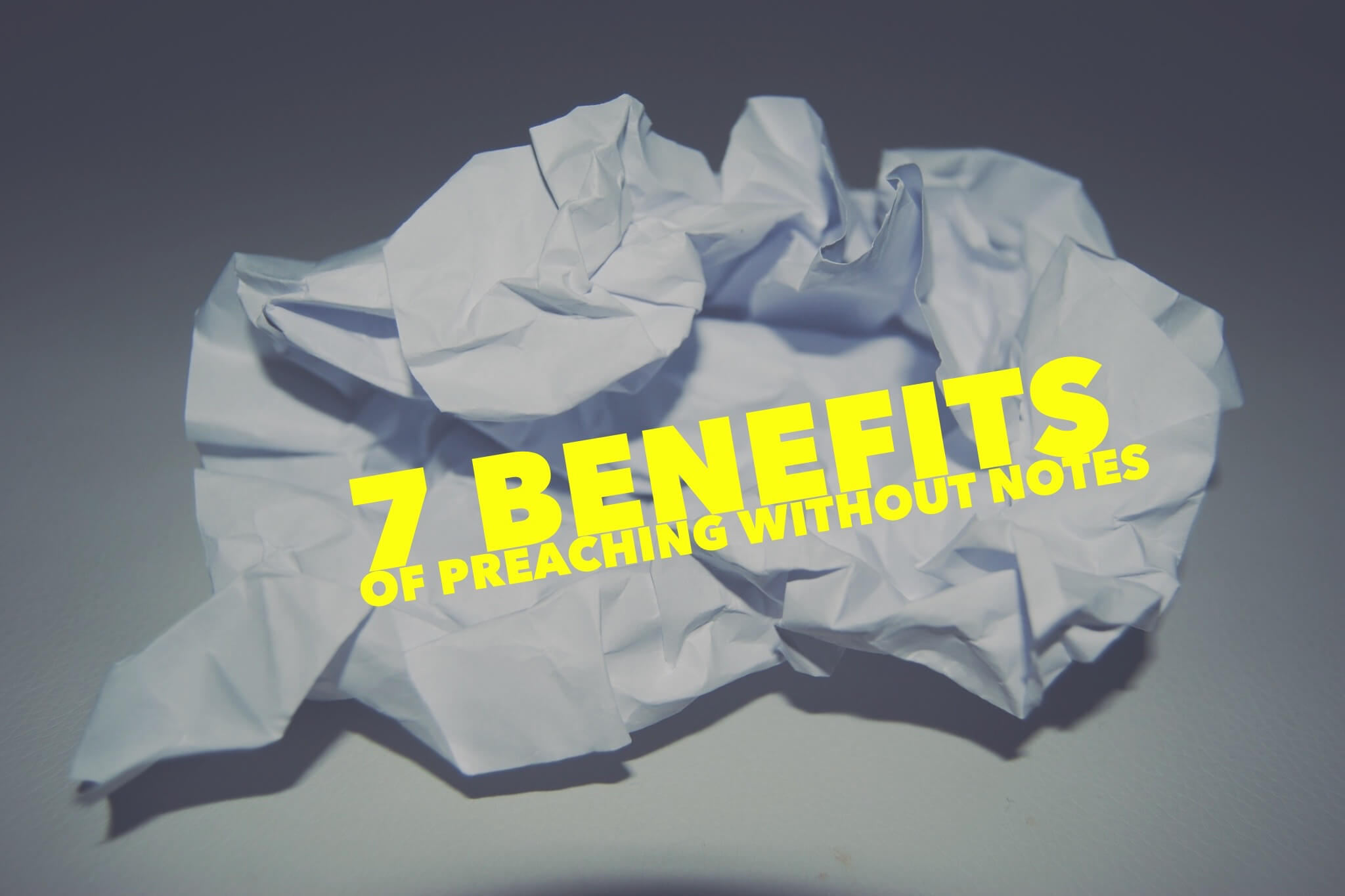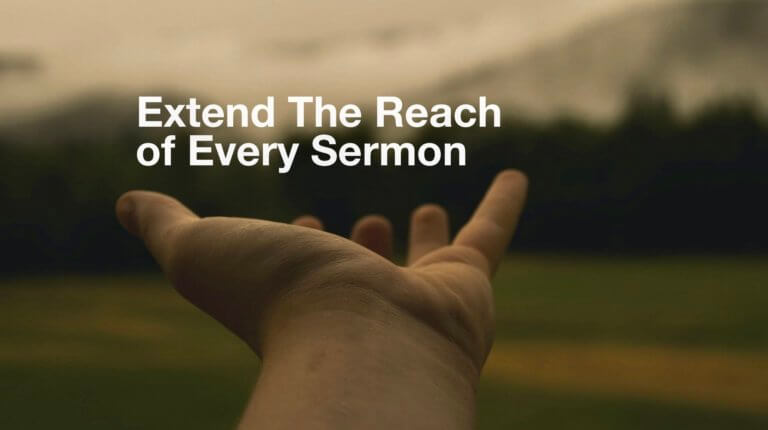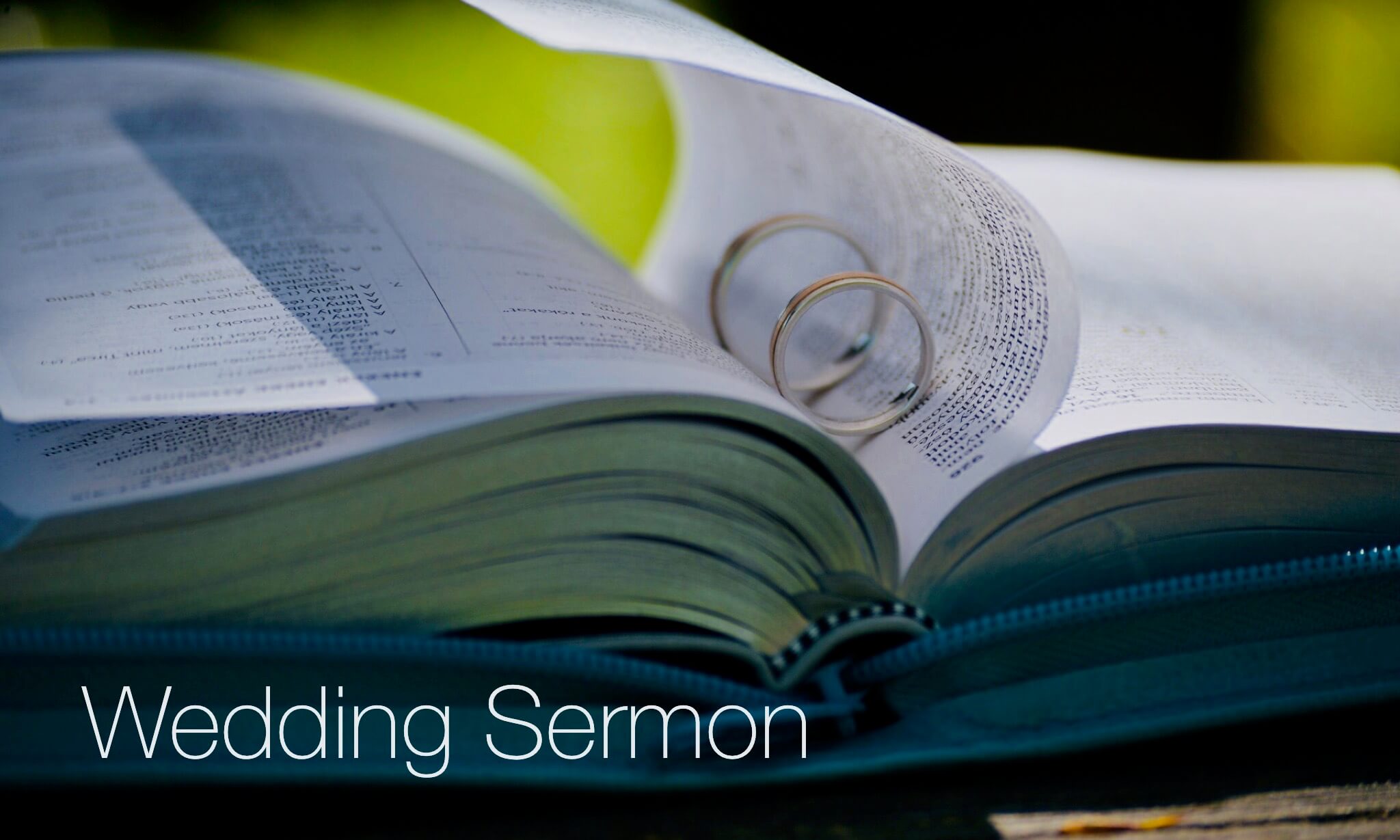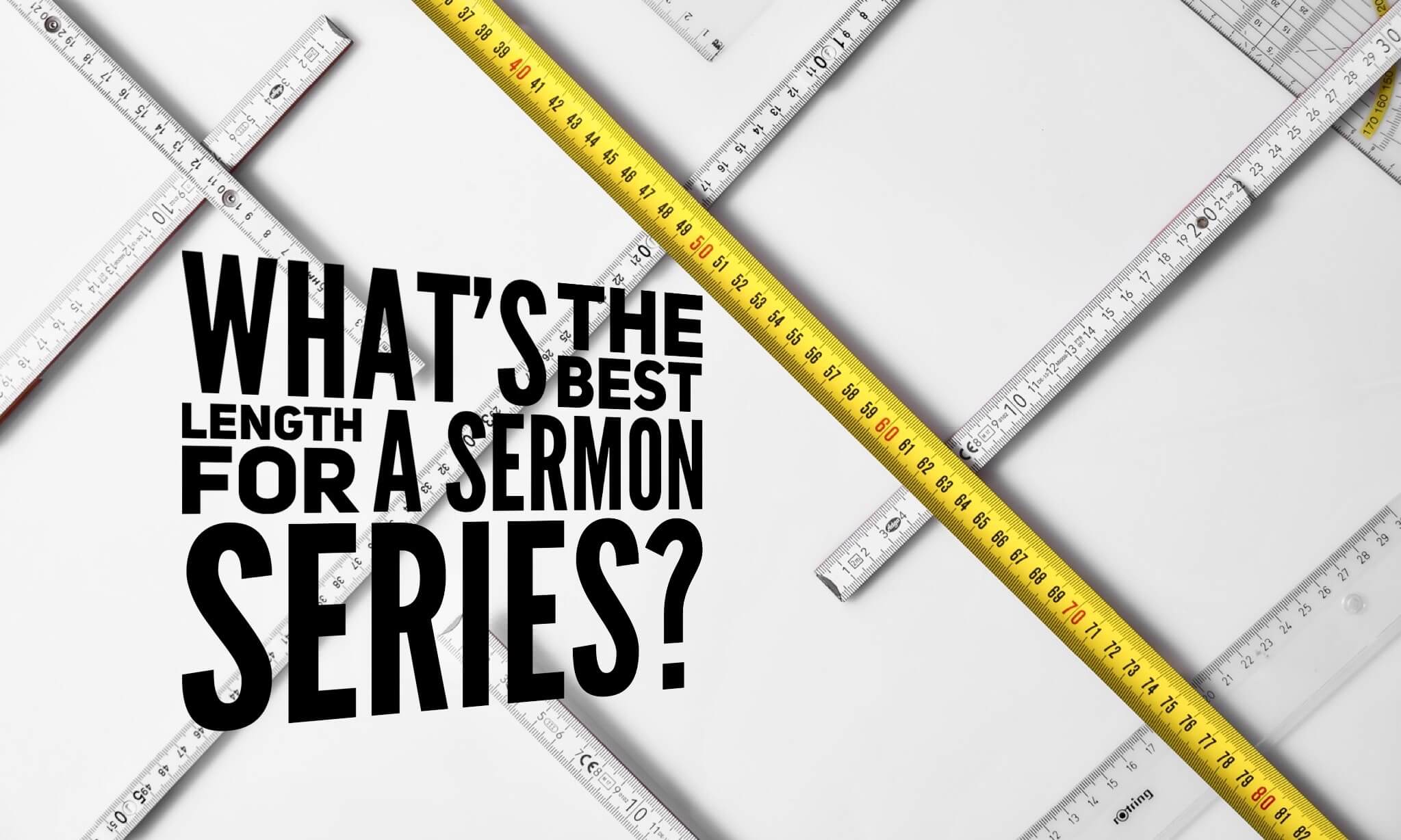7 Benefits of Preaching Without Notes

Growing up, I never wanted to be a pastor because public speaking was one of my biggest fears.
If I were to have ranked my worst fears in order, it would have been:
- Girls
- Public speaking
- Death
- Speaking to girls
My first sermon was terrible. I hid behind the biggest podium I could find, clutching my notes in both shaking hands
My sermon notes were my lifeline. I never took my eyes off of them.
That poor audience!
The content was OK, but the delivery stunk.
Fast forward a few years, and someone challenged me to preach without notes. It was one of the scariest thing ever did, but my sermon delivery improved considerably. And the more I practiced, the better I got.
My notes were a crutch. They made me feel safe when, in reality, they were an excuse for my insecurity and laziness. I thought they were helping me, but they were holding me back.
Today, I still prefer to write a full manuscript of my sermon to clarify my thoughts, but I only allow myself to bring one small page of notes with me on stage.
If you are curious, here is an outline I used a while ago.
Most of the notes I have with me are direct quotes of the Scripture I am teaching because that should be read word for word. The rest is a brief outline with few key points and illustrations that I don’t want to forget.
Sure, there are plenty of good preachers who use a lot of notes. However, I believe the best, most engaging preachers rarely if ever rely on their notes.
Here’s why:
7 Benefits of Preaching Without Notes (or just a few notes)
1. You will preach more from your heart.
What would find to be more sincere: if I wrote you an apology email, or if I were to look you in the eyes and tell you how sorry I am?
The written word is powerful, but it cannot fully capture the heart. In the same way, your notes can get in the way of fully communicating what God has laid on your heart in all your study.
2. You will sound more conversational.
When you preach without notes, you will preach similar to how you talk to people. You will use more of the words that you use in a normal conversation. Your true personality will come through.
Reading notes, or even looking at them too often looks and feels more formal. It’s how politicians give speeches.
3. You will have more eye contact with your audience.
Proper eye contact is incredibly important. It builds trust, shows confidence, increases engagement, and helps you read your audience. Read more about eye contact here. You cannot look at your notes and your audience at the same time.
4. You won’t be stuck behind a podium.
When you preach with a lot of notes, you are stuck behind your note stand. Without notes, you are free to make more use of the space on the stage. Also, podiums create a barrier between you and the audience.
Without notes, you can remove the podium altogether or use a small stand or table off to the side to rest your Bible and a couple of notes for when you need them.
5. You will have to be more prepared.
For me, preaching from my notes was lazy. Once I put in the hard work of writing my message, I wanted to be done. It was much easier to read what I wrote than to internalize a message and commit much of it to memory. Preaching without notes forced me to prepare more.
6. You will allow more room for the Holy Spirit to speak in the moment.
Have you ever had a moment where God brings something to mind in the midst of preaching that you hadn’t thought of before?
Sometimes those little thoughts the Holy Spirit give me in the moment are the most powerful point in the entire sermon.
If I were tied to my notes, I would likely stick to the script. Freeing myself from notes allows the flexibility for those inspired moments.
7. You will use better gestures.
Your body follows your focus. The more you focus on your notes, the more your body wants to focus on them as well.
Your head dip down, you will stand close to the notes, and your hands will want to touch or rest next to the page as you read. Your gestures likely consist of lifting your hands off the podium and setting them down again.
But when you are focused more on the delivery than the reading of a message, your body is free to move and act out what you are talking about.
Do you preach with a lot of notes, no notes, or a few notes?





I enjoyed reading your article. I am a teacher called by God both as a profession and personally. I have seen both methods of preaching or teaching, but I have only taught using a simple outline. What has thoroughly helped me to teach publicaly is to visualize myself on the stage speaking. Once God provides me with the message, I pray through it while I study and create the outline. I then mentally rehearse the talking points with my eyes closed so that I can visualize being on the platform depending on the venue. I love to teach His word! Thank you for the thought provoking post!
nice but ho does one go about doing this ??
Great question Brian. I plan on writing a post later this week to explain. It will likely get published on Thursday. Stay tuned.
I’ve been finishing a four year D.Min degree from Dallas Theological Seminary on homiletics. They encouraged no-notes preaching. I’m in favor of it now and that’s all I do. My one ‘crutch’ is to tab cross-references in my Bible. Ok, sometimes I will write my alliterative words in the margins.
One thing it does is SIMPLIFY my thoughts. If I can’t flow the message in my head, my listeners surely can’t follow me easily in their ears! I also get LOTS of things while speaking to them without notes. LOTS of nods, puzzled looks (which signals my need to elaborate), and body language that they are saying “Amen”- which is very encouraging to sense. I can see droopy eyes and know to turn up the passion. This helps a lot in the commo process.
Great points Mark. I completely agree that preaching without notes (or just a few notes) causes you to simplify your message. And being able to read the audience is one of the major benefits of eye contact. Thanks!
I humbly disagree especially about the statement referring to “laziness”. Some people are gifted to speak without a manuscript, some are gifted to deliver powerful sermons from a manuscript, while others are gifted to speak without notes, without manuscript! So who is to say one method is better than another. God has a way of speaking the truth through the speaker who has spent time before Him!
Cora, thanks for sharing your opinion. I agree that there is not one way for everyone. My point about laziness is that I used my notes as an excuse for not working harder to know the sermon material better by heart.